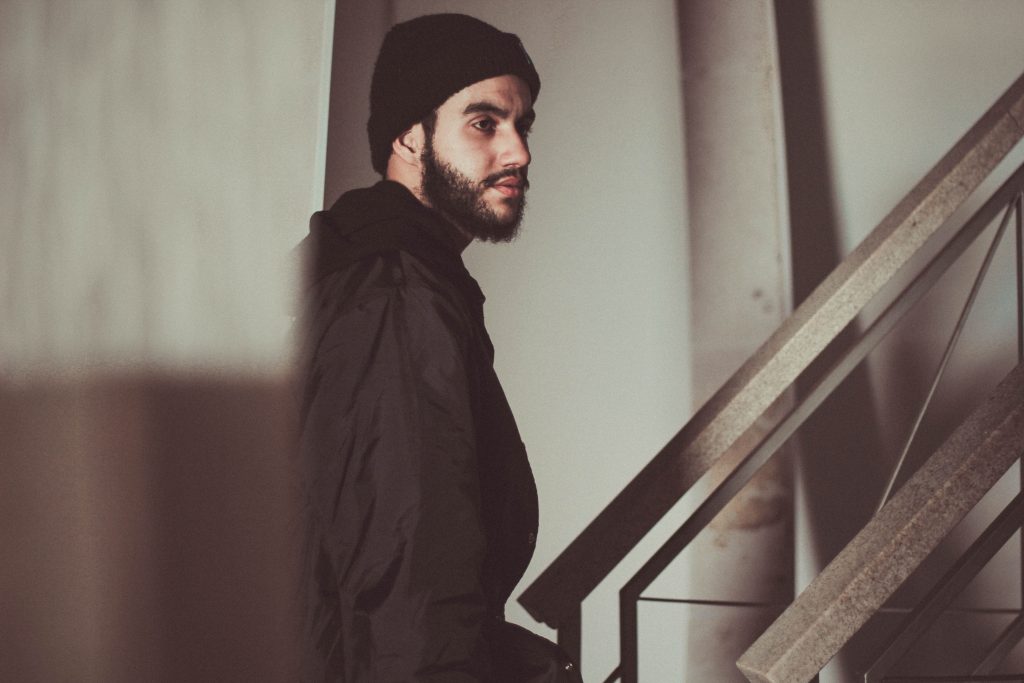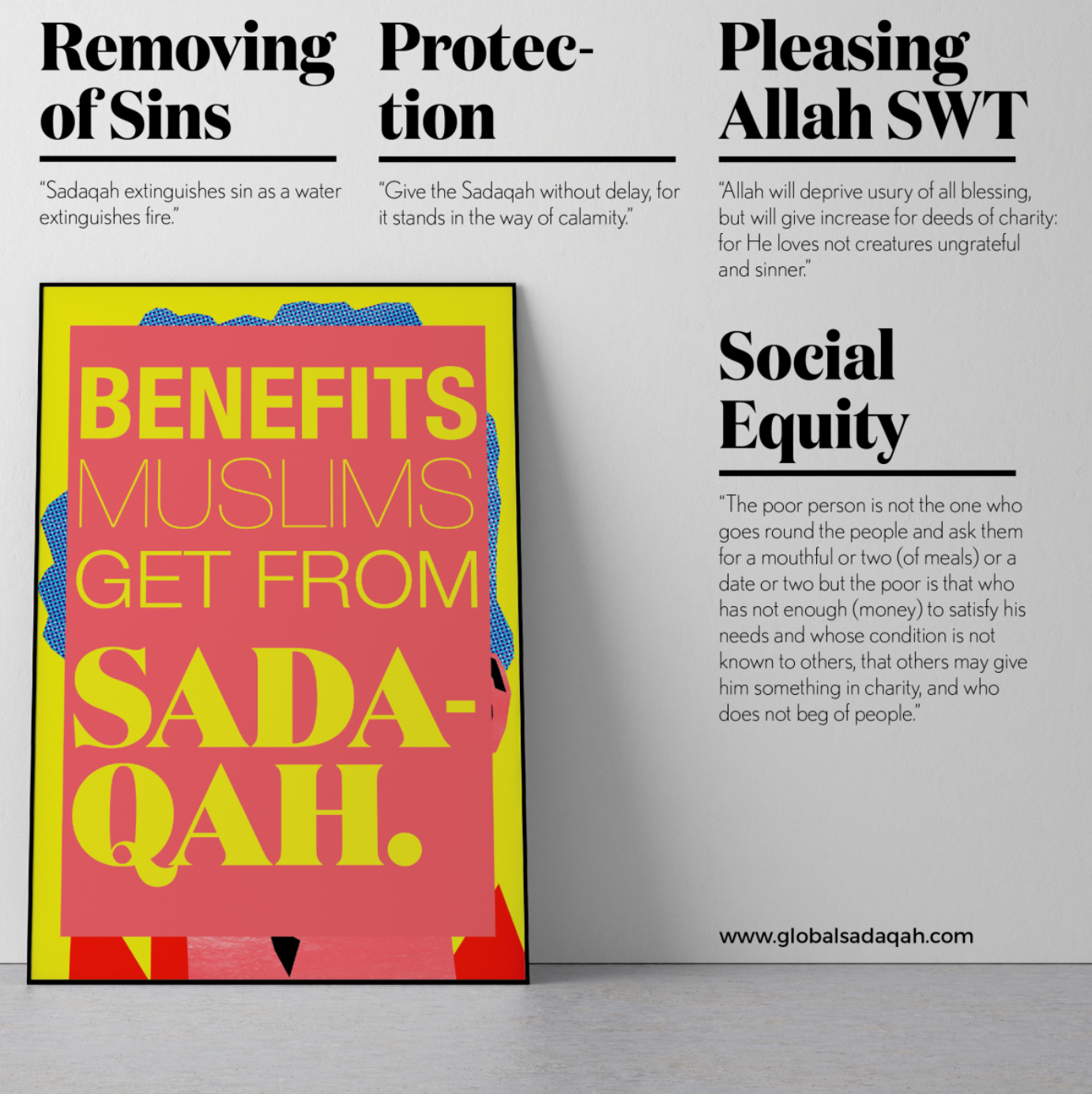Prophet Muhammed (Peace Be Upon Him) was sent as an example for mankind. Throughout his life he showed us the importance of Sadaqah by giving whatever he had as charity and saving very little of what he owned for himself. We Muslims are also encouraged and ordered in the Quran to involve in giving charity to the poor and the needy.
What Should a Muslim Know About Sadaqah?
Sadaqah, which derived from the Arabic root Sadq (truth) means any form of charitable giving that is voluntary. Every action of righteousness done to benefit another is considered as Sadaqah, be it smiling or feeding the poor. It is noteworthy to highlight that charity is the only form of spending, where your wealth never reduces from giving to another.
The Messenger of Allah (Peace Be Upon Him) said: “Whoever gives charity equal to a date from good (halal) earnings – for Allah does not accept anything but that which is good – Allah will take it in His right hand and tend it for the one who gave it as any one of you tends his foal, until it becomes like a mountain.” (Al-Bukhari)
Difference Between Zakat and Sadaqah
Zakat and Sadaqah both refers to charity in Islam and has been advocated many times in both the Quran and Sunnah. Unlike Sadaqah, Zakat is an obligatory giving which is a duty upon every abled Muslim. It is the duty of every Muslim to give in charity 2.5% of their annual cumulative wealth to Muslims belonging to one of the eight eligible groups.
On the other hand, Sadaqah is the voluntary giving and acts of righteousness done to help the poor and needy to please Allah (SWT). It is a spiritual obligation upon every Muslim who is looking forward to please Allah (SWT) to give of what He has bestowed upon us. Sadaqah can be given to anyone at any time of the year.
Types of Sadaqah
Sadaqah is not restricted to any form of wealth, money, materials or good deeds. All good deeds done by Muslims for the sake of Allah SWT) to benefit another being is considered as Sadaqah in Islam.
Prophet (Peace Be Upon Him) said, “Every Muslim has to give in Sadaqah (charity).” The people asked, “O Allah’s Messenger (Peace Be Upon Him)! If someone has nothing to give, what will he do?” He said, “He should work with his hands and benefit himself and also give in charity (from what he earns).” The people further asked, “If he cannot do even that?” He replied, “Then he should help the needy who appeal for help.” Then the people asked, “If he cannot do that?” He replied, “Then he should perform all that is good and keep away from all that is evil and this will be regarded as charitable deeds.” (Bukhari)
Sadaqah can be performed by any Muslim with the intention of pleasing Allah (SWT) and doing good to his brother. To be eligible to give Sadaqah one need not be very wealthy, but rather have pure intention only.
Prophet Muhammed (Peace Be Upon Him) said: “To smile in the company of your brother is charity. To command to do good deeds and to prevent others from doing evil is charity. To guide a person in a place where he cannot get astray is charity. To remove troublesome things like thorns and bones from the road is charity. To pour water from your jug into the jug of your brother is charity. To guide a person with defective vision is charity for you.” (Bukhari)
Making dua for the wellbeing of someone is also a form of Sadaqah. Feeding the poor, digging wells, helping the education of poor, and even planting a tree under which people can rest is considered as Sadaqah.
Benefits Muslims Get From Sadaqah
Sadaqah has benefits for both the benefactor and the beneficiary.
Removing of Sins
Prophet Muhammad (Peace Be Upon Him) has said that “Sadaqah extinguishes sin as a water extinguishes fire.” (Tirmidhi). By giving Sadaqah Muslims are able to wash off their sins and also please Allah (SWT).
Pleasing Allah (SWT)
By giving charity frequently Muslims learn to be more generous. Performing charity for the sake of Allah (SWT) increases our iman and brings us closer to Him. The rewards for charity are not only for this world but also for the next.
“Allah will deprive usury of all blessings, but will give increase for deeds of charity: for He loves not creatures ungrateful and sinner.” (Qur’an, 2: 276)
Social Equality
When Muslims begin giving Sadaqah to the poor and needy, we are able to lend a hand to fulfil their needs and establishes social equality. When all Muslims oblige and give due charity whenever they can, eradication of poverty from the society is then possible.
Prophet of Allah (Peace Be Upon Him) said: “The poor person is not the one who goes round asking for a mouthful or two (of meals) or a date or two from people, but the poor is that who has not enough (money) to satisfy his needs and whose condition is not known to others, that others may give him something in charity, and who does not beg of people.” (Bukhari)
Protection
Sadaqah serves as a protection for us from both adversities and the hell-fire. According to the following hadith, “Guard yourselves against the Fire (of Hell) even if it be only with half a date-fruit (given in charity); and if you cannot afford even that, you should at least say a good word.” (Bukhari). It is evident that charity saves us from Jahannam.
“Give the Sadaqah without delay, for it stands in the way of calamity.” (Tirmidhi) According to this narration of what Prophet Muhammed (Peace Be Upon Him) said, Sadaqah serves as a protection from tragedies.
Conclusion
Islam has taught every Muslim to involve in giving Sadaqah in any forms that they can. Sadaqah does not confine to wealth or materials alone, but any act of righteousness and selfless deed done for the sake of Allah is considered as Sadaqah.


